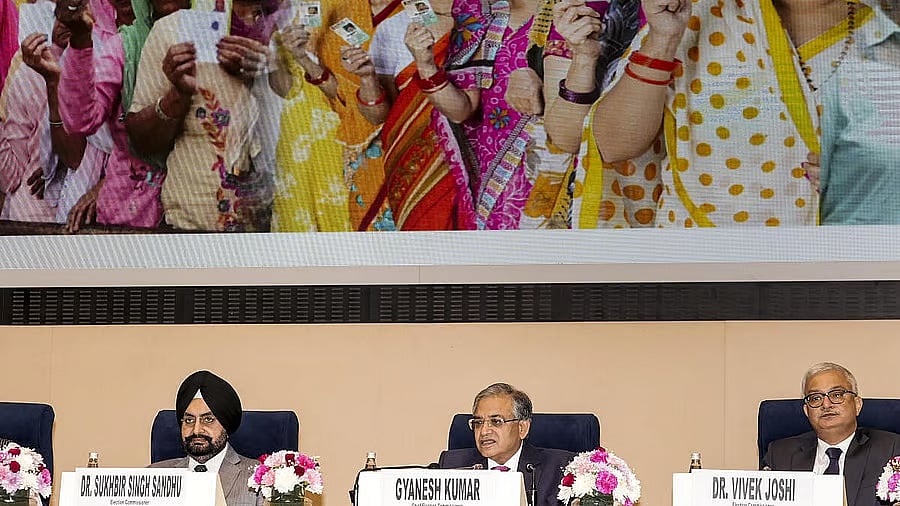
Chief Election Commissioner Gyanesh Kumar with Election Commissioners Sukhbir Singh Sandhu and Vivek Joshi during a press conference.
Credit: PTI Photo
The Election Commission of India (ECI)’s announcement of the second round of the Special Intensive Revision (SIR) of electoral rolls comes after Bihar, where many questions about the revision remain unanswered. Ensuring representative electoral rolls is the central idea behind the fresh exercise, to be held in 12 states and Union Territories, including West Bengal, Tamil Nadu, and Kerala. In Bihar, the SIR was initiated with a stated objective to update the rolls, with a focus on the presence of migrant and ineligible voters. However, the exercise was plagued with procedural lapses and hurried implementation, making it difficult for the voters. Though the Supreme Court’s intervention addressed some of the shortcomings and corrected gross lapses, the outcome was far from perfect.
The EC has said that the fresh exercise will be different in some respects. There is a longer notice period – of 54 days – for the hearing and verification of details. The enumeration form will feature new fields. Voters can produce Aadhaar as one of the supporting documents, though there is confusion following Chief Election Commissioner Gyanesh Kumar’s statement that Aadhaar does not prove citizenship but only identity. No documents will be required to be furnished during the Booth Level Officers’ house-to-house verification and collection of forms. Electors can enter their details in the forms if they were voters in 2002-04 or the details of a relative who was an elector then. However, the term “relative” has not been defined.
Persistent gaps in procedures may work against the rights of genuine voters. That citizens have to prove they are voters is an inherent flaw; people from the poorer and marginalised sections of society may find this harder to comply with. The question of whether the EC can undertake a citizenship test is yet to be answered. In Bihar, the SIR saw a deletion of 47 lakh voters, but the Commission has not provided the reasons for these deletions. Neither the Commission nor the CEC has revealed the number of foreign nationals removed from the rolls after the revision. The disproportionate exclusion of women from the final voters’ list has also not been explained. States such as Tamil Nadu, Kerala, and West Bengal have opposed the SIR and criticised it as a move to disenfranchise large sections of people. As the Commission prepares for the next round, it will have to navigate the trust deficit it has created with its actions. This friction and apprehension will cast a shadow over the processes and outcomes of the exercise.
